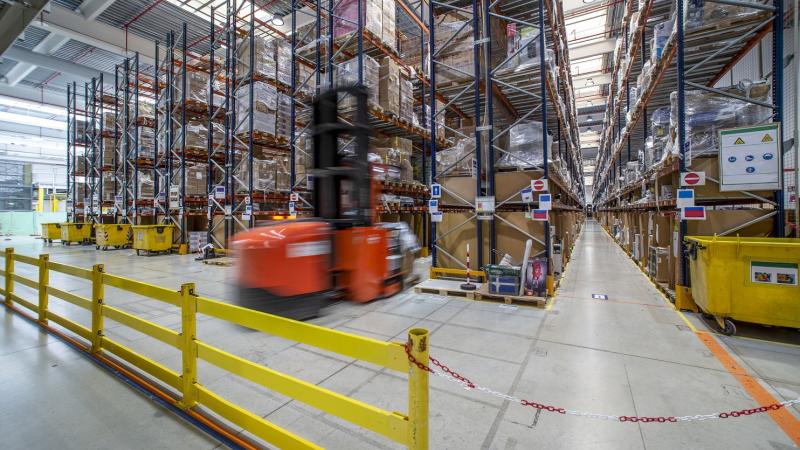Opportunities for businesses needing immediate and changing distribution solutions
April 14, 2022

New research from Rensselaer Polytechnic Institute shows that innovative business models that tap into extra warehouse space can be a potential solution for companies with changing demand requirements or tight fulfillment windows.
Jennifer Pazour, an associate professor in the Department of Industrial and Systems Engineering at Rensselaer, and Kaan Unnu, a doctoral graduate of the department, found that a firm’s use of on-demand warehousing is supported if it has tight response requirements, for example, for same-day delivery. However, if a firm has relaxed response requirements, then on-demand warehousing is only recommended if capacity availability of planned on-demand services is high.
The paper, “Evaluating on-demand warehousing via dynamic facility location models” published in IISE Transactions, is the first to formulate an optimization model incorporating on-demand system properties into distribution-network design problems.
“On-demand warehousing is a new way for firms to create more agile, dynamic, and collaborative supply chain networks, which is especially beneficial if they need to adapt to uncertain and changing demand,” Dr. Pazour said. “However, such solutions also come with new cost structures and risks. This research is exciting as it provides proven methods for firms interested in evaluating how best to adopt on-demand warehousing into their supply chain networks.”
With people purchasing more and more goods online, businesses of all sizes need distribution methods to bring their goods to market. Traditional distribution centers require big buildings that come with high investment cost, which makes it cost prohibitive for many companies to have many distribution locations.
Outsourcing distribution needs to a third-party company that specializes in distribution via a long-term lease has been the primary alternative for businesses. Yet, these contracts typically take a long time to negotiate and come with minimum inventory requirements, making it difficult for a firm to adjust their distribution network structure.
On-demand warehousing is a recent innovation that offers underutilized warehouse space and distribution capabilities in the supply chain networks of other companies. These opportunities are advantageous in that they don’t require the long-term commitment of constructing and operating a building, but they hold different cost structures like a higher per-pallet handling cost.
To determine the circumstances under which on-demand warehousing is beneficial for customers, Dr. Pazour developed a dynamic facility-location model able to simultaneously consider the location and allocation decisions of the three types of distribution centers.
The research showed that several factors, including on-demand capacity availability, responsiveness requirements, and demand patterns, influence the cost-effective use of this innovative model of product distribution.
“While on-demand warehousing was not found to be the best solution in every situation, it is very successful at supplementing more traditional distribution methods,” Dr. Pazour said. “I think we need to think differently about how supply chains acquire, utilize, and allocate resources to meet customer demands, and how we build the business models and algorithms to tap into those under-utilized resources. One of the powers of on-demand warehousing is in creating hybrid network designs that more efficiently use self-distribution facilities through improved capacity utilization.”